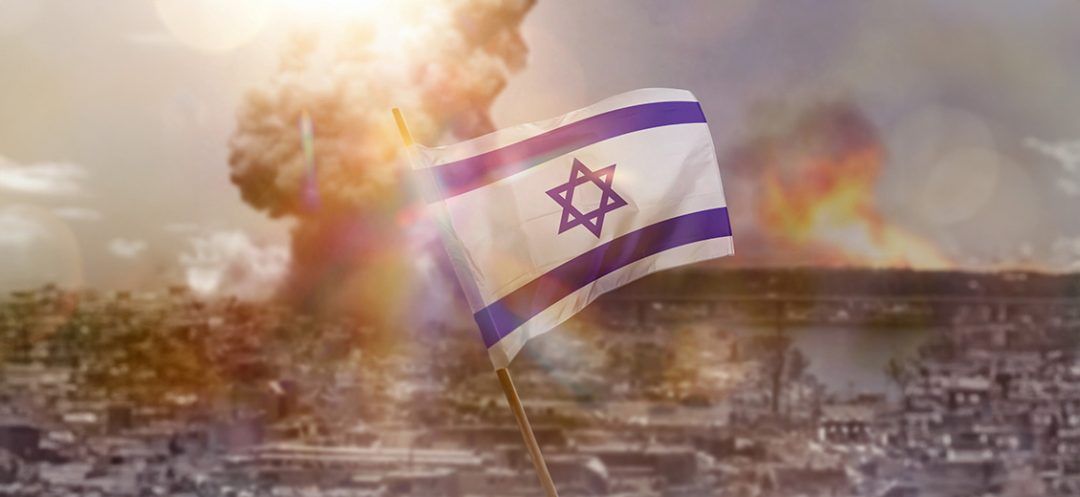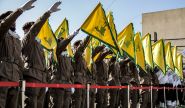
Listen to the article
[audio mp3="https://thisisbeirut.com.lb/wp-content/uploads/2024/06/Calls-for-de-escalation-between-Hezbollah-and-Israel-are-multiplying.-Between-the-two.mp3"][/audio]
Calls for de-escalation between Hezbollah and Israel are multiplying. Between the two belligerents, who engaged in escalating confrontations in the wake of the October 7 offensive, mutual threats are on the rise.
International diplomats are now making successive visits to Lebanon and Israel, engaged in a race against time to defuse tensions and prevent a broader regional conflict. Will diplomatic efforts prevail over the widespread devastation predicted by a large majority of military experts and geopolitical analysts?
Will the Diplomatic Route Succeed?
At a time when threats are being fiercely traded on both sides of the border between Lebanon and Israel, European and American ministers and envoys are earnestly cautioning against the repercussions of this destructive cycle, urging all the parties to exercise self-restraint.
On Monday, the German Foreign Minister, Annalena Baerbock, began a tour of the Middle East, starting in Tel Aviv. On Tuesday, she is scheduled to meet with Palestinian Prime Minister Mohammad Mustafa in Ramallah (West Bank), before heading to Beirut to meet with Lebanese officials.
The visit comes hot on the heels of a meeting of the Foreign Affairs Council in Luxembourg, where EU foreign ministers discussed the alarming situation in the Middle East, with the escalation on the Lebanese-Israeli border high on the agenda. “The United Kingdom seeks a peaceful solution through a negotiated settlement” between the two parties, stated British Foreign Minister David Cameron on his X account. Meanwhile, in an interview with al-Hadath media, his Italian counterpart, Antonio Tajani, called on Washington to “present a plan ensuring a buffer zone between Lebanon and Israel.”
Will these statements yield results? “Diplomacy is doing what it is supposed to do,” says Frederic Encel, a geopolitical analyst and Middle East specialist consultant. “Once the parties involved decide to go all the way, the issue of war becomes inevitable. Diplomats are simply implementing the wishes of the leaders. They have no decision-making power,” he adds.
Is Lebanon on the Brink of War?
So far, we have always talked about a “low-intensity” war between Hezbollah and Israel. “Those who, simplistically, view wars as mere accidents of history are highly mistaken. Today, we are at risk of witnessing a very high-intensity war,” Encel contends. According to experts, what are the clear indicators?
Displacement of Residents From Border Villages
With nearly 140,000 displaced people on both sides of the Lebanon-Israel border, “we are close to a breaking point,” believes Professor Encel. According to him, the Israelis have reached a “threshold of tolerance, beyond which any government would have initiated a war to stop the assaults at its internationally recognized border under UN Security Council Resolution 1701, adopted following the 2006 war between Hezbollah and Israel.” This theory is confirmed by researcher at the Belgian Royal Military Academy Didier Leroy, “Whether Netanyahu remains in power or if early elections result in a new Prime Minister, the priority will be to manage the security threat towards the residents of northern Israel who are asking to return to their villages.” Politically speaking, it is therefore difficult to imagine that the Israeli government—whether current or new—could ignore this reality.
The Tunnels Issue
If some experts fear the scenario of an imminent war, it's mainly due to the aforementioned security issue closely tied to the issue of the “Gaza metro.” While analysts estimated about 500 kilometers of tunnels, the Israeli military reportedly found nearly double that amount, totaling 1,000 kilometers. “Now, one can guess what Hezbollah might have built under southern Lebanese territory and other regions since 2006. This underscores the gravity of the security challenge and describes how the economic and political ramifications of a war could be overshadowed,” Leroy explains. “Let's not forget as well that, during the Gaza operation, the Israeli army allegedly obtained documents outlining a scenario similar to the deadly offensive of October 7th, meant to be implemented by Hezbollah's Radwan Force against Israeli towns in Galilee, much to the concern of Hassan Nasrallah,” recalls Professor Rigoulet-Roze, Middle East specialist and consultant in international relations.
End of the Military Operations in Rafah
Last Sunday, the Israeli Prime Minister stated the following, “The intense phase of combat against Hamas is about to conclude (...) This doesn't mean the war is ending, but rather the intense phase of the war is about to end in Rafah.” He further stated, “Following this phase, we will redeploy some forces northward, as planned.” Over the coming weeks, the Israeli military's primary goal will be to free additional hostages and eliminate, one way or another, several Hamas commanders. So, at this stage, “the focus will be on searching, exploring, and destroying the tunnels in Gaza and neutralizing them,” Leroy asserts. While four divisions are currently deployed on the northern front with Lebanon, “a troop transfer is currently underway to this area, in preparation for significant operations, especially as the vast majority of parking lots, such as Rambam in Haifa, have now been converted into field hospitals,” notes Rigoulet-Roze.
Official Statements
On June 18, Israeli Foreign Minister Israel Katz issued a stark warning of total war. “We are very close to the point of deciding to change the rules of engagement against Hezbollah and Lebanon. In a total war, Hezbollah will be destroyed and Lebanon will be severely affected.” This statement came on the same day Israeli offensive plans against Lebanon were approved. Israel perceives that the rules of engagement have irreversibly shifted. As early as October 9, Netanyahu signaled Israel's intention to reshape the Middle East, “with all the uncertainties that such an announcement entails,” notes Rigoulet-Roze. He adds, “In early 2024, Defense Minister Yoav Gallant foresaw the eventual emergence of a northern front and the need to address it, expecting a multi-front war. Even as early as April 24, 2023, Gallant had contended that “the era of limited conflicts was over,” citing the “merging of battlefields” orchestrated by Tehran against Israel, as noted by Rigoulet-Roze. In this context, Gallant recently visited Washington to provide updates on the situations in Gaza and along the Lebanese border.
As for Hezbollah, its Secretary-General Hassan Nasrallah was quick to respond to Israel Katz's threats, “If war is imposed on Lebanon, the resistance will fight without rules and without limits. Israel knows that none of its territory will be spared from our drones and missiles.” Nasrallah's statements came as Hezbollah released drone footage over Haifa, a major port in northern Israel, and issued warnings to Cyprus about potential Israeli use of its airports and military bases for targeting Lebanon.
Is It Still Possible to Avoid a War?
According to General Jean-Bernard Pinatel, a paratrooper officer, commando instructor, and recognized expert in strategic and economic intelligence, who is also the vice-president of the think tank Geopragma, any potential war in Lebanon would have taken place shortly after October 7, 2023. “From a strategic standpoint, Iran which has prevented Hezbollah from engaging significantly for several months, is unlikely to change its position now, especially as Israel is about to conclude its massive attacks in Gaza,” he explains. Furthermore, “on the Israeli side, the war in Gaza has been costly in terms of human losses and GDP, making a confrontation in Lebanon far too expensive,” emphasizes General Pinatel, dismissing the possibility that Israel would initiate a high-intensity conflict against Hezbollah. With no immediate resolution in sight, General Pinatel predicts the current situation could persist for many more months.
According to Frederic Encel, the outcome – which is unlikely, at least for the time being – would be the downfall of the Iranian regime. Information obtained by This is Beirut suggests that a popular uprising in Tehran was expected to occur following the helicopter accident that resulted in the death of Ebrahim Raisi on May 19. However, this attempt proved unsuccessful due to reported inconsistencies among the insurgents.
A third scenario would be that once the war in Gaza ends, Hezbollah stops its attacks on Israel, as it has always linked these two situations. As a result, Israel would then be forced to reciprocate. However, such a scenario would strengthen Hezbollah's position and would not resolve Tel Aviv’s aforementioned security issue.
In the face of the looming possibility of war and the near failure of diplomatic efforts, Lebanon stands out as the greatest victim, bearing the burden of conflicts not instigated by its own actions, but rather imposed due to its nonexistent sovereignty.
[audio mp3="https://thisisbeirut.com.lb/wp-content/uploads/2024/06/Calls-for-de-escalation-between-Hezbollah-and-Israel-are-multiplying.-Between-the-two.mp3"][/audio]
Calls for de-escalation between Hezbollah and Israel are multiplying. Between the two belligerents, who engaged in escalating confrontations in the wake of the October 7 offensive, mutual threats are on the rise.
International diplomats are now making successive visits to Lebanon and Israel, engaged in a race against time to defuse tensions and prevent a broader regional conflict. Will diplomatic efforts prevail over the widespread devastation predicted by a large majority of military experts and geopolitical analysts?
Will the Diplomatic Route Succeed?
At a time when threats are being fiercely traded on both sides of the border between Lebanon and Israel, European and American ministers and envoys are earnestly cautioning against the repercussions of this destructive cycle, urging all the parties to exercise self-restraint.
On Monday, the German Foreign Minister, Annalena Baerbock, began a tour of the Middle East, starting in Tel Aviv. On Tuesday, she is scheduled to meet with Palestinian Prime Minister Mohammad Mustafa in Ramallah (West Bank), before heading to Beirut to meet with Lebanese officials.
The visit comes hot on the heels of a meeting of the Foreign Affairs Council in Luxembourg, where EU foreign ministers discussed the alarming situation in the Middle East, with the escalation on the Lebanese-Israeli border high on the agenda. “The United Kingdom seeks a peaceful solution through a negotiated settlement” between the two parties, stated British Foreign Minister David Cameron on his X account. Meanwhile, in an interview with al-Hadath media, his Italian counterpart, Antonio Tajani, called on Washington to “present a plan ensuring a buffer zone between Lebanon and Israel.”
Will these statements yield results? “Diplomacy is doing what it is supposed to do,” says Frederic Encel, a geopolitical analyst and Middle East specialist consultant. “Once the parties involved decide to go all the way, the issue of war becomes inevitable. Diplomats are simply implementing the wishes of the leaders. They have no decision-making power,” he adds.
Is Lebanon on the Brink of War?
So far, we have always talked about a “low-intensity” war between Hezbollah and Israel. “Those who, simplistically, view wars as mere accidents of history are highly mistaken. Today, we are at risk of witnessing a very high-intensity war,” Encel contends. According to experts, what are the clear indicators?
Displacement of Residents From Border Villages
With nearly 140,000 displaced people on both sides of the Lebanon-Israel border, “we are close to a breaking point,” believes Professor Encel. According to him, the Israelis have reached a “threshold of tolerance, beyond which any government would have initiated a war to stop the assaults at its internationally recognized border under UN Security Council Resolution 1701, adopted following the 2006 war between Hezbollah and Israel.” This theory is confirmed by researcher at the Belgian Royal Military Academy Didier Leroy, “Whether Netanyahu remains in power or if early elections result in a new Prime Minister, the priority will be to manage the security threat towards the residents of northern Israel who are asking to return to their villages.” Politically speaking, it is therefore difficult to imagine that the Israeli government—whether current or new—could ignore this reality.
The Tunnels Issue
If some experts fear the scenario of an imminent war, it's mainly due to the aforementioned security issue closely tied to the issue of the “Gaza metro.” While analysts estimated about 500 kilometers of tunnels, the Israeli military reportedly found nearly double that amount, totaling 1,000 kilometers. “Now, one can guess what Hezbollah might have built under southern Lebanese territory and other regions since 2006. This underscores the gravity of the security challenge and describes how the economic and political ramifications of a war could be overshadowed,” Leroy explains. “Let's not forget as well that, during the Gaza operation, the Israeli army allegedly obtained documents outlining a scenario similar to the deadly offensive of October 7th, meant to be implemented by Hezbollah's Radwan Force against Israeli towns in Galilee, much to the concern of Hassan Nasrallah,” recalls Professor Rigoulet-Roze, Middle East specialist and consultant in international relations.
End of the Military Operations in Rafah
Last Sunday, the Israeli Prime Minister stated the following, “The intense phase of combat against Hamas is about to conclude (...) This doesn't mean the war is ending, but rather the intense phase of the war is about to end in Rafah.” He further stated, “Following this phase, we will redeploy some forces northward, as planned.” Over the coming weeks, the Israeli military's primary goal will be to free additional hostages and eliminate, one way or another, several Hamas commanders. So, at this stage, “the focus will be on searching, exploring, and destroying the tunnels in Gaza and neutralizing them,” Leroy asserts. While four divisions are currently deployed on the northern front with Lebanon, “a troop transfer is currently underway to this area, in preparation for significant operations, especially as the vast majority of parking lots, such as Rambam in Haifa, have now been converted into field hospitals,” notes Rigoulet-Roze.
Official Statements
On June 18, Israeli Foreign Minister Israel Katz issued a stark warning of total war. “We are very close to the point of deciding to change the rules of engagement against Hezbollah and Lebanon. In a total war, Hezbollah will be destroyed and Lebanon will be severely affected.” This statement came on the same day Israeli offensive plans against Lebanon were approved. Israel perceives that the rules of engagement have irreversibly shifted. As early as October 9, Netanyahu signaled Israel's intention to reshape the Middle East, “with all the uncertainties that such an announcement entails,” notes Rigoulet-Roze. He adds, “In early 2024, Defense Minister Yoav Gallant foresaw the eventual emergence of a northern front and the need to address it, expecting a multi-front war. Even as early as April 24, 2023, Gallant had contended that “the era of limited conflicts was over,” citing the “merging of battlefields” orchestrated by Tehran against Israel, as noted by Rigoulet-Roze. In this context, Gallant recently visited Washington to provide updates on the situations in Gaza and along the Lebanese border.
As for Hezbollah, its Secretary-General Hassan Nasrallah was quick to respond to Israel Katz's threats, “If war is imposed on Lebanon, the resistance will fight without rules and without limits. Israel knows that none of its territory will be spared from our drones and missiles.” Nasrallah's statements came as Hezbollah released drone footage over Haifa, a major port in northern Israel, and issued warnings to Cyprus about potential Israeli use of its airports and military bases for targeting Lebanon.
Is It Still Possible to Avoid a War?
According to General Jean-Bernard Pinatel, a paratrooper officer, commando instructor, and recognized expert in strategic and economic intelligence, who is also the vice-president of the think tank Geopragma, any potential war in Lebanon would have taken place shortly after October 7, 2023. “From a strategic standpoint, Iran which has prevented Hezbollah from engaging significantly for several months, is unlikely to change its position now, especially as Israel is about to conclude its massive attacks in Gaza,” he explains. Furthermore, “on the Israeli side, the war in Gaza has been costly in terms of human losses and GDP, making a confrontation in Lebanon far too expensive,” emphasizes General Pinatel, dismissing the possibility that Israel would initiate a high-intensity conflict against Hezbollah. With no immediate resolution in sight, General Pinatel predicts the current situation could persist for many more months.
According to Frederic Encel, the outcome – which is unlikely, at least for the time being – would be the downfall of the Iranian regime. Information obtained by This is Beirut suggests that a popular uprising in Tehran was expected to occur following the helicopter accident that resulted in the death of Ebrahim Raisi on May 19. However, this attempt proved unsuccessful due to reported inconsistencies among the insurgents.
A third scenario would be that once the war in Gaza ends, Hezbollah stops its attacks on Israel, as it has always linked these two situations. As a result, Israel would then be forced to reciprocate. However, such a scenario would strengthen Hezbollah's position and would not resolve Tel Aviv’s aforementioned security issue.
In the face of the looming possibility of war and the near failure of diplomatic efforts, Lebanon stands out as the greatest victim, bearing the burden of conflicts not instigated by its own actions, but rather imposed due to its nonexistent sovereignty.
Read more



Comments